The recent issues around Cambridge Analytica and Facebook have sparked a global concern about the online harvesting and usage of personal data to unconsciously influence decisions at the individual level—otherwise known as psychographic profiling.
Former Cambridge Analytica employees claim that psychographics developed by the firm, using data obtained from Facebook, targeted voters in the 2015 Brexit Campaign and the 2016 U.S. Presidential Elections.
With Europe’s new personal data protection laws (EU GDPR) coming into force, times are changing in how far companies are allowed to use personal data for commercial or political reasons. Data privacy has become a hot topic, paving the way for improved policies on the collection of data online and increased transparency in how one’s personal data is being used.
Are you aware of how your personal data is being used? What does data protection mean for you? And what tools and techniques can you use to conduct your own online profiling in a way that’s ethical?
Personal data is precious cargo. Handle with care.
As U.S. and U.K. regulators launch investigations into how personal data is being shared, it’s a critical teaching moment for all businesses. The bottom line: When a customer loses trust in you, it’s going to take enormous effort, time, and money to win that trust back.
Regulation may be one of the solutions. Several tech executives—including Facebook’s own Mark Zuckerberg—are open to the idea of more regulation, especially in the arena of political advertising. Apple CEO Tim Cook recently spoke at a forum in Beijing and said there is a need for “well-crafted” regulation of user data. “The ability of anyone to know what you’ve been browsing about for years, who your contacts are, who their contacts are, things you like and dislike, and every intimate detail of your life—from my own point of view, it shouldn’t exist,” said Cook.
“When a customer loses trust in you, it’s going to take enormous effort, time, and money to win that trust back.”
The knock-on effect of your online behavior
The simple act of pushing the “Like” button on Facebook adds to your psychographic profile, whether you’re aware of it or not. And this spills over into the psychographic profiles of your friends. A former Facebook ad product manager, Antonio Garcia Martinez, explains the true value of this. In an interview with WNYC’s “On the Media” radio program, he said, “What they [advertisers] really care about and what they use the data for is figuring out other people who are like you. If you’ve got five friends, it’s more than likely they have the same consumption patterns and political views that you do.”
So, if advertisers start targeting your five friends, is this right or wrong? Or is it simply marketing? Is it a privacy issue if your five friends don’t care and are happy to receive the ads? What if one of them didn’t want to be targeted? This is a snapshot of what regulators have to consider in the context of data protection laws.
Achieving a global standard for privacy regulations will be tough. Mozilla’s COO, Denelle Dixon, spoke to Hult International Business School about this issue last February. “You have a fundamental right to privacy in Europe. In the U.S., it’s a different standard” said Dixon, adding that corporations should clearly spell out their privacy policies.
Techniques used by Cambridge Analytica and Facebook have a psychological influence
The psychological profiling of people using online data is called psychographics. Modern data analytic techniques used by mobile apps and online platforms like Facebook are capable of predicting various kinds of personal characteristics—like income level, sexual orientation, and even political views—using data left online by you or your friends.
This information can be used to adapt the look and feel of advertisements to fit your personality profile, tailor online messaging to trigger specific emotions and beliefs, and even predict future behavior to a high level of accuracy.
Psychographics help explain why people do what they do, providing its users with the ability psychologically profile and unconsciously influence the behavior of targeted individuals.
Data collection: taking stock
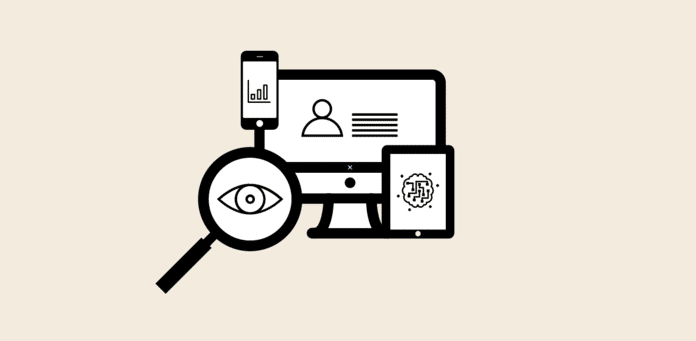

Though the usage of psychographics has received negative publicity due its proclaimed usage to sway political views, psychographics can also be used to increase your organization’s effectiveness. Here are some strategies and tools you can use to ethically start working with psychographic data.
To be able to use psychographic methods, one first needs to collect data. You can collect psychological trait information using both direct and indirect methods.
Direct methods:
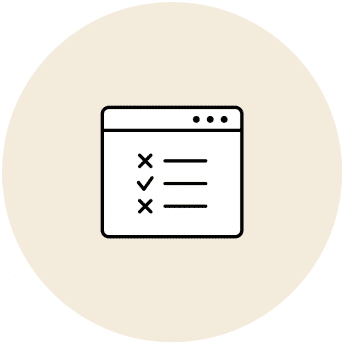

1. Questionnaires & surveys
The most obvious direct-method approach to collecting psychographic data is using online surveys, personality tests, and lifestyle preference questionnaires. When using direct data collection methods, make sure to keep your questions short and reliable enough to conclude specific psychological traits.
Tools you can use include SurveyMonkey and Qualtrics. These surveying tools provide some predefined personality, behavioral trait, attitudes, and emotional state surveys that can be customized for your specific purpose.
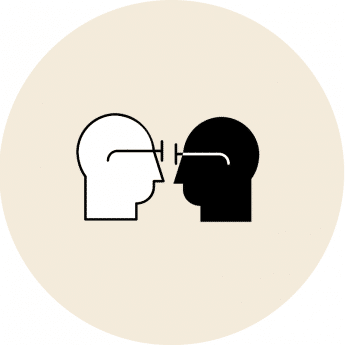

2. Face-to-face
Personal interviews and focus groups are also a great way to collect psychological traits.
These can aid in the creation of consumer personas and segmentation based on personality, beliefs, lifestyle, and habits.
Indirect methods:
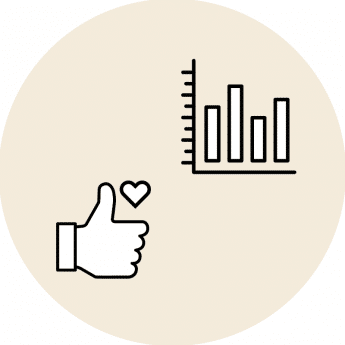

1. Structured & unstructured data
There are two types of data used in psychographics: structured data and unstructured data.
Structured data is data ordered by data mining tools, such as numerical data and text input used in psychological trait analysis. For example, survey data, and google analytics website data.
Unstructured data is data that cannot be easily categorized or broken down, and reflects text, visual, emotional, and audio data. For example, social media posts, audio files, and images.
A great example of an online tool that predicts personality traits based on LinkedIn profile data or email data is www.crystalknows.com. This app provides a Google Chrome add-on that you can download and use to conduct a DISC-like assessment.
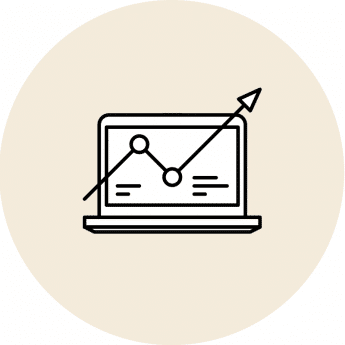

2. Analytical tools
Orange is a great data visualization tool that helps analyze both structured and unstructured data.
You can integrate various data APIs to conduct numerical, visual, cluster, and sentiment analysis.


3. Predictive analytics & machine learning
Dataiku is a useful application to perform online data analytics and machine learning based on structured data.
If you own a webstore or have an online platform, you can analyze your online data through Dataiku, creating a machine-learning algorithm that helps you predict customer behaviors and psychological profiles.
Did you know?
For many years, personality data was not considered a great predictor of actual behavior or performance. The reason for this was the limited predictive validity of personality data, limited information collected by existing validated instruments, and issues concerning test-retest reliability.
However, since the arrival of big data, algorithms, and machine learning, psychological traits can be inferred from one’s digital footprint. This creates a new and more robust way of psychometric assessment. Tablets, mobile phones, personal computers, and wearables have become the new digital survey, capable of passive, real-time, and continuous data collection.
Interested in knowing exactly what kind of information online platforms are collecting? Google and Facebook have made it possible to download the data they have collected on you.
Export a copy of your Google data here.
Find out how to download your Facebook data here.
Want to learn more?
Register for a Hult Masterclass on “The Addictive Elements of Social Media Design,” where we will be sharing our recent study findings on social media usage.
Upcoming Masterclasses:
-
-
- 21 April, Dubai
- 27 April, Mumbai
-
To secure your place, please send an email to lehto@hult.edu (limited seats available)
You can also sign-up to receive a FREE* copy of Ali Fenwick’s new E-Book: Digital Psychology–Understanding and Applying Psychology Online. Or, register here for a free online course in Behavioral App Design.
And for more recent insights, you can watch the Behavioral Economics Summit 2.0 online from the comfort of your home.
*Release date Q2 2018: Limited copies available. FREE copy provided on a first-come-first-served basis


Ali Fenwick is Professor of Industrial-Organizational Psychology at Hult. He teaches organizational behavior, leadership, and consulting method to both MBA and Executive MBA students.


Pauline Chiou is a contributing writer for Hult International Business School. She currently covers global business, news, and politics for CNN International as a freelance journalist based in New York. She spent nine years in Asia as an anchor for CNN in Hong Kong and CNBC in Singapore. Follow Pauline on Twitter @PaulineChiou.
Grow your leadership capabilities with an MBA in international business at Hult. To learn more, take a look at our blog A new model for leadership development in the 21st century, or give your career a boost with our Masters in International Business. Download a brochure or get in touch today to find out how Hult can help you to learn about the business world, the future, and yourself.



